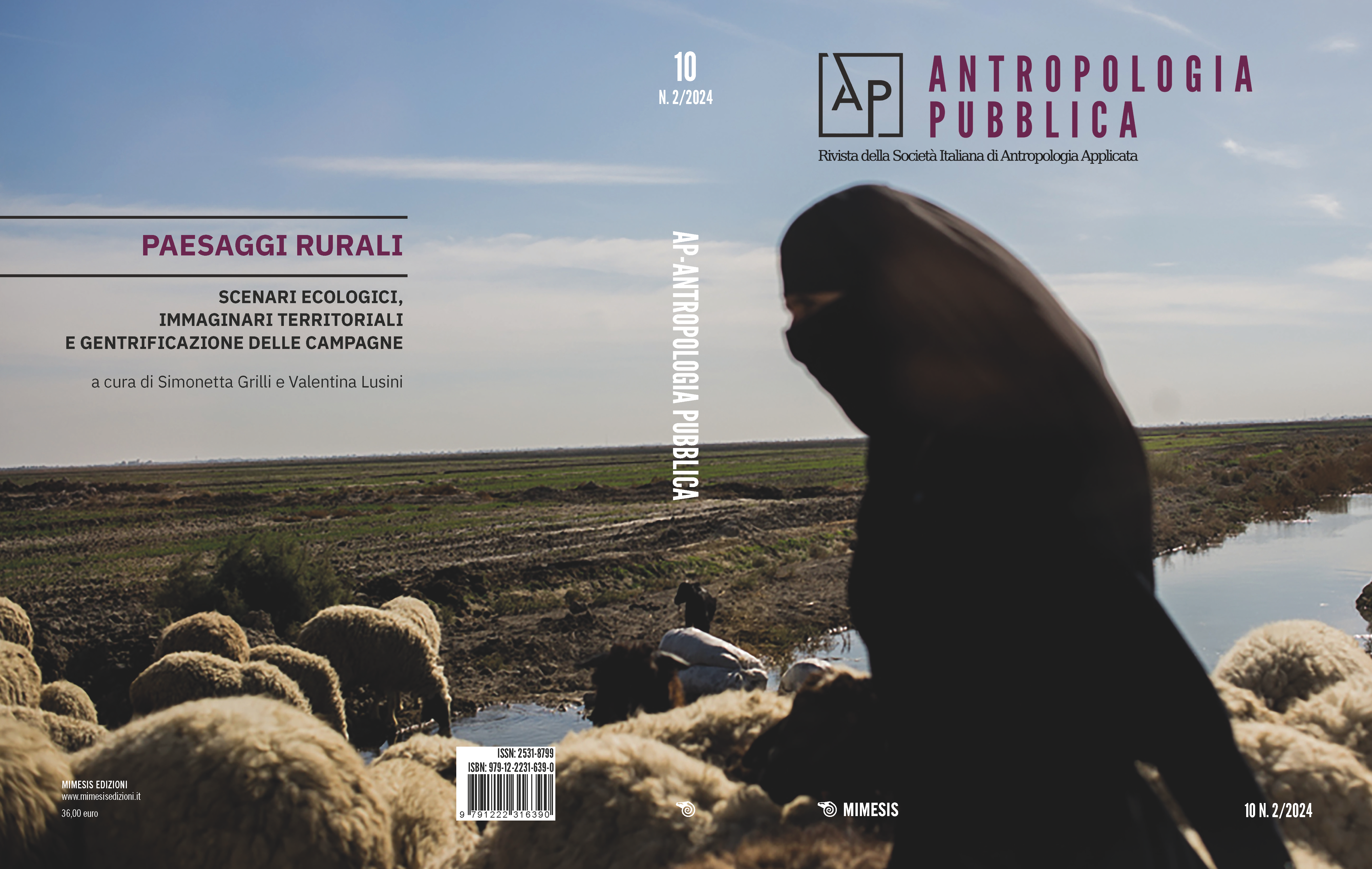Faglie di rischio. Delocalizzazioni, spaesamenti e appaesamenti alle pendici del Monte Etna
DOI:
https://doi.org/10.7413/2531-87990023Abstract
Tra il 2023 e il 2024 presso l’Università di Catania è stato avviato un progetto sperimentale di antropologia dei disastri in collaborazione con l’Istituto Nazionale di Geofisica e Vulcanologia (INGV) e con la Struttura Commissariale Ricostruzione Area Etnea (SCRAE) volto all’analisi dei processi di delocalizzazione di alcuni nuclei famigliari ubicati all’interno dei nove comuni del versante orientale del Monte Etna colpiti dal grave evento sismico del 26 dicembre 2018. La ricerca si è concentrata sull’abbandono forzato delle abitazioni da parte dei residenti e sulle dinamiche di spaesamento e appaesamento generate dal trasferimento. Il presente articolo nasce da un lavoro di riflessione condiviso, frutto di elaborazione congiunta che ha previsto la costruzione di un impianto teorico e metodologico comune. Tuttavia, per esigenze di attribuzione formale delle singole parti, si precisa quanto segue:* il paragrafo “Introduzione” (pp. 56-59) è attribuibile a Vincenzo Lo Bartolo;
* il paragrafo “Scenario interpretativo e domande di ricerca” (pp. 60-63) a Mara Benadusi;
* il paragrafo “Contesto, metodologia, interlocutori sul campo” a Mario Mattia (pp.64-65) e a Vincenzo Lo Bartolo (66-67);
* il paragrafo “Il vero terremoto è cominciato dopo il terremoto!” a Mario Mattia (pag. 68-71), Vincenzo Lo Bartolo (pag. 72-74) e Mara Benadusi (pag. 75-79);
* il paragrafo “Rilevanza pubblica della ricerca” da pag. 80 a pag. 83 (tranne ultimo capoverso) è attribuibile a Mario Mattia e la parte da pag. 83 (ultimo capoverso a pag. 84) a Mara Benadusi.
* Le “Conclusioni” sono frutto di un lavoro congiunto (1 pagina per autore).
##submission.downloads##
Pubblicato
2024-12-09
Come citare
Benadusi, M., Mattia, M., & Lo Bartolo, V. (2024). Faglie di rischio. Delocalizzazioni, spaesamenti e appaesamenti alle pendici del Monte Etna. Antropologia Pubblica, 10(2), 55–92. https://doi.org/10.7413/2531-87990023
Fascicolo
Sezione
Miscellanea



